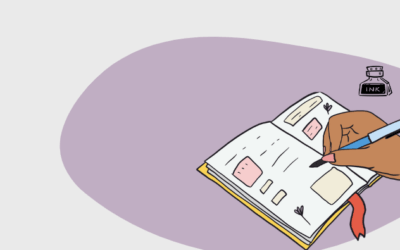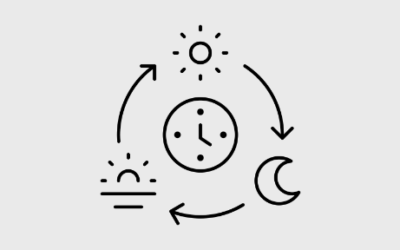How to get more out of your monthly salary.
Managing Your Money Better is something that everyone should learn and practice. The lack of money is often the biggest issue behind most of your life problems.
Imagine how much money you will save in a year if only you can spend $10 less on groceries each week.
What would you do with that money? Pay off some debt? Take an online class to learn a new skill?
Buy your kid his/her first bike?
Get a closet makeover?
Having money is key to unlocking your dream life. And since you are reading this, I know you are seeking ways to manage your money better.
Here is how to get started RIGHT NOW!
Disclaimer: I am NOT a Financial Advisor, Planner, or Counselor. Hence, the information presented here is NOT professional advice. It is my own opinion and exists only for educational and informational purposes.
1
Get serious about budgeting.
The #1 way to manage your money better is to get serious about budgeting. You do not have to use a fancy app or get too technical. All you need is a pocket-size notebook and a pen that will fit into your handbag.
Use it to keep track of how much money is coming in and going out every day. In other words, at the start of the week, write down how much money you have, and throughout the week, make a note every time you purchase something. This will help you to see what you are spending money on. Chances are that you will realize that half of the time you are spending money on things you do not need.
2
Collect all your receipts in one place for the Month.
More times than we are willing to admit, we find ourselves not wanting something after purchasing it. Then the item just sits there, unused.
That is your hard-earned money wasted.
Keeping your receipts in one place makes it easy to return items depending on the store’s return policy.
Additionally, you can always refer to your receipts to get an overview of how much money you spend on food, clothes, or any other specifics for the month. Having an idea of how much you usually spend on a specific area each month can help you to create the perfect budget for you.
Related Article: How to Come Up with a Food Budget
3
Look over your bank statement.
Your bank statement allows you to see the many ways you are spending money online. Often, we sign up for Free trials and forget to cancel before the free trial ends.
Or you willfully pay for subscriptions that you rarely use.
Sometimes you may even notice that the cable company has increased your payment without improving your service. In which case you can call the company and ask them to lower the bill, or you will have to cancel. They will work with you.
If you used a particular service to watch a show you love but the season is over and you need to wait a full year for another season to be released, cancel that subscription while you wait.
Only pay for things you are actively using and make sure that it is worth the money you are paying.
4
Report spammed Transactions on your Bank Account
This is a follow-up on the previous point but if you do not recognize a transaction on your statement and you are positive that it should not be there, call your bank and let them know. They will refund your money and send you a new card. This way you will have a fresh start on what you choose to pay for.
However, please make sure that you call anywhere that you SHOULD be making payments to each month and give them the new card number. Any other unwanted services can stay canceled.
5
Take cash with you when leaving the house.
I know that it is so much easier to take a card in your wallet. It is also easier to swipe your card when it is time to check out and be on your way.
But that is the whole problem.
It is too easy.
Taking hard cash with you when leaving the house instead of your Debit or Credit Cards limits the amount of money you can spend. I mean, there is no overdraft attached to cash. And if you care about your money, you will find it hard to part with all that cash at once.
Or to even spend it all in one place.
Related article: The #1 Rule for Budgeting a Low Income
6
Limit the amount of money you take with you into any store.
Taking cash around with you is one thing. But what if you can lower your chance of overspending even further?
When you get to the parking lot and it is time to grab your wallet and head into the store, take with you ONLY the sum of money you want to spend in that store. Leave the rest at home or in the car. But make sure to Lock your car.
This is especially great if you are heading into a store that is all about impulsive shopping like Ross, Burlington, Tjmaxx, etc.
No one is saying to stop shopping at those stores. You can have fun with the money you work hard for but always include it in your budget.
7
Practice shopping from your shelves at home.
This simply means to skip going to the stores and get creative with what you already have.
For example, one week per month, you can skip going to the grocery store and plan your meals for the week using the items you already have in your fridge, freezer, and pantry. A lot of the time you will notice that you have more than enough food items at home for the week.
Plus, you will get a chance to use up items that are near their expiration dates or that you have bought and used only once to try out a new recipe.
In other cases, you can go through your closet and get creative with your outfit if you have a special occasion coming up instead of buying a whole new outfit.
Shopping from your shelves at home can help you to become more aware of all the things you buy that you do not need. It will also get your creative juices flowing.
8
Start splitting the bills with the person/s that you live with
Every working person in your home should take part in bill payment. It not only eases the burden on you but everyone else involved.
In this way, you can build your emergency fund, pay off a debt or get to learn that new skill a lot faster.
So, if you are not already doing this, then make sure to have this discussion with anyone you live with as soon as possible.
9
Use a budgeting ratio to help you divide and allocate your paycheck the right way.
Budgeting Ratios are great tools for knowing exactly what percentage of your money should go towards:
- Expenses– Rent, Bills, Groceries, etc.
- Savings
- Investing– (does not have to be stocks, you could start by investing in your education or something big that would be rewarding to you in the long-run)
- Giving– (to use for birthday gifts and such.)
For each paycheck, you divide your salary into these four areas, but the tangible results come when you spend no more than what was allocated to each category.
I have used this for many years, and it has worked wonders for my finances.
If you wish to learn more about budgeting ratios, you can check out this article on the 97:1:1:1% Budgeting Ratio.
10
Make it a priority to never spend more than you earn.
My final and MOST effective tip is to never spend more than you earn.
Repeat. Never spend more than you earned.
This statement is everything in a world where ‘use now and pay later’, AKA credit cards are so popular.
If you never spend more than you earn, you will not have to deal with debt. And you will work harder when you desire something bigger than your budget.
Getting things now and paying later is the #1 way to run into money troubles. So, the sooner you snap out of this habit, the better your future with finance will be.
To summarize, here are the 10 Practical ways to start managing your money better:
1. Get serious about budgeting.
2. Collect all your receipts in one place for the month.
3. Look over your Bank Statement.
4. Report spammed transactions on your bank account.
5. Take cash with you when leaving the house.
6. Limit the amount of cash you take with you into any store.
7. Practice shopping from your shelves at home
8. Split the bills with the person/s you live with
9. Use a budgeting ratio to help you divide and allocate your money the right way.
10. Never spend more than you earn.
I can give you all the tips, but it is now up to you to put them to use. Even if you start with one right now, I promise you will see a difference in your finances. I know because I have used every single one of these.
If you find this article helpful, be sure to share it with your friends and family on your social media.
Thank you for reading!
Pin me for Later ↓

Here's more
9 Tips to Get Your Life Together
To get your life together is to be your own parent. As you grow older, you might realize that there are many parts of your life that need change. You are no longer the careless youth you were. For me it happened as I got closer to entering my late twenties. I was so...
How to Create Simple and Successful Morning Routine
A Morning Routine is a set of habits you go through when you wake up to prepare you for taking on the day. But do you know that a successful morning routine starts the night before? It starts by going to bed mentally ready to take on the next day. Your actions in the...
Creating Routines around Irregular Work Hours
Routines are essential for achieving maximum productivity and unlocking bits of freedom in your day-to-day life. This means finally being able to work on your long-term goals with more consistency. Routines help you to know what to do and when to do it. But producing...




